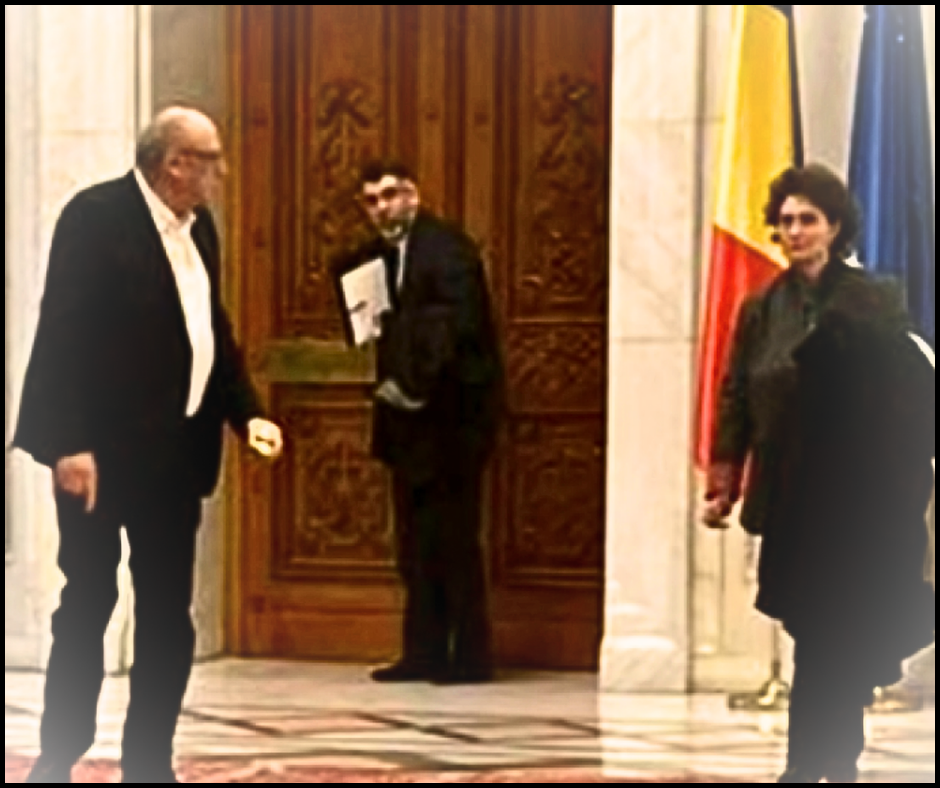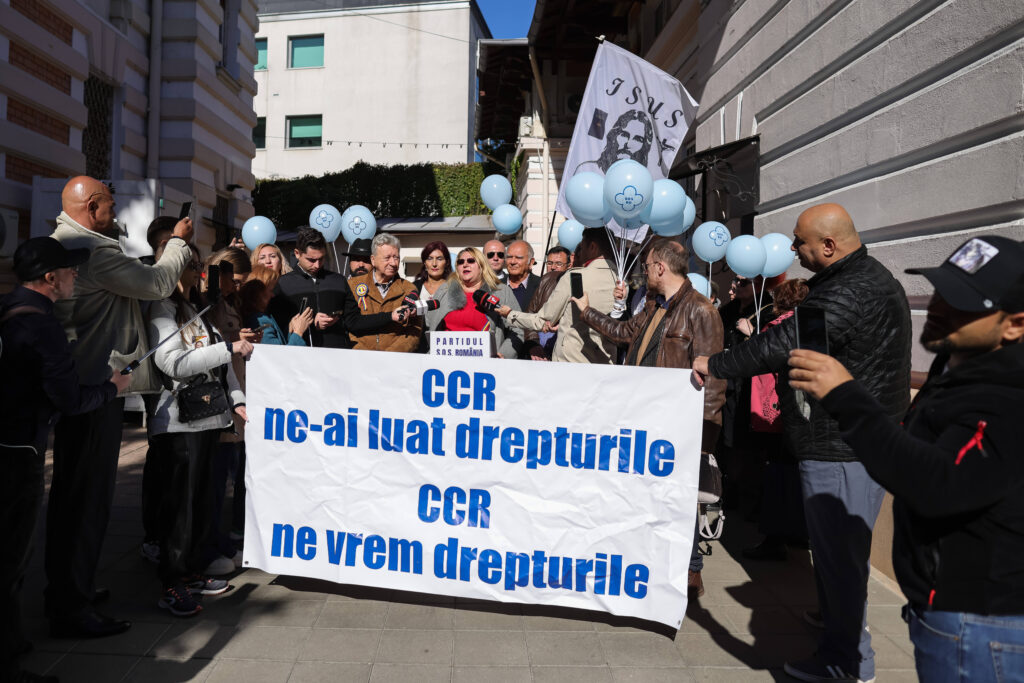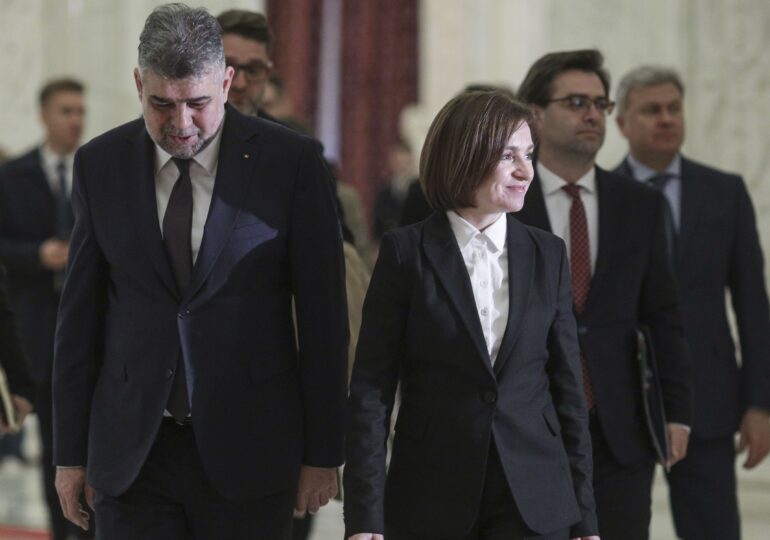In March 2024, the PSD president announced that he has seen the files prepared by the Republic of Moldova and Ukraine following which the governments of the two states decided that George Simion, the leader of AUR, is banned from entering both countries.
„We had those discussions, I received the documents, the documents have a secret regime,” said Prime Minister Marcel Ciolacu at the time.
„I have seen the decisions, both from Moldova and Ukraine, to maintain the ban on Mr. George Simion from entering Moldova and Ukraine. I think it is a strong enough signal, a politician to be banned at this moment from entering two neighboring countries,” Marcel Ciolacu added on March 18.
Since then, silence has set in, and now, with less than two weeks until the elections, Ciolacu and Simion have the highest chances of reaching the presidential final.
It remains a mystery how Marcel Ciolacu managed to obtain access to documents considered secret, as well as the Opposition's indifference that did not do much during this period to ensure that the PSD leader does not use the information from those files for his own benefit.
"Do not ask me to disclose things I am not allowed to say. It's a well-founded administrative decision. It also concerns the unification of Romania with the Republic of Moldova, and I suspect that Romania did not want to unite with Ukraine either," added the Prime Minister of Romania at the time, further deepening the mystery surrounding George Simion's controversial political career.
George Simion is part of the destabilization effort in the Republic of Moldova, and Marcel Ciolacu was informed
Dorin Recean, Prime Minister of the Republic of Moldova
An accusation from two sources
In April 2023, Lieutenant General Oleksandr Skipalski, former First Deputy Head of the Security Service of Ukraine (SBU), stated that George Simion, the leader of AUR, met at least once with a resident of the Russian Federal Security Service (FSB) in Chernivtsi, Ukraine, in 2011.
Skipalski explained that an SBU officer, the Ukrainian intelligence service, who was active in Chernivtsi at that time, confirmed this meeting.
These statements were also supported by Anatol Șalaru, former Minister of Defense of the Republic of Moldova, who stated that in 2011, George Simion met in Chernivtsi with an FSB chief.
Șalaru specified that he received the information from the director of the Intelligence and Security Service of the Republic of Moldova (SIS) at that time.
About the possible collaboration of George Simion with Russian services, I have also talked with other people in Romania, including some officials, but their reaction was zero. Probably, many were afraid to confront George Simion, to argue with him
Anatol Șalaru, former Minister of Defense of the Republic of Moldova, interview with Spotmedia.ro
How politicians influence the decisions of the Constitutional Court
In March 2024, another episode raised suspicions among the public opinion.
Marian Enache, the President of the Constitutional Court, appointed by the PSD, and Iulia Scântei, a CCR judge appointed by the PNL, were photographed leaving the office of PSD Senator Robert Cazanciuc.

The meeting was related to the legal procedures through which the social democrats and liberals were to run on joint lists in the European parliamentary elections.
However, what drew attention was the existence of an underground channel of communication between party leaders and CCR judges.
The political pressure exerted on the Constitutional Court was further highlighted on October 5, when the institution, with a majority of 5 votes, decided to ban Diana Șoșoacă's candidacy for the Romanian presidency "for violating the eligibility conditions provided by the Constitution, regarding the values of democracy, the rule of law, and respect for the Constitution, correlated with Romania's membership in the European Union and NATO."
At that time, a political source told Spotmedia.ro that the CCR decision was related to a PSD political plan to support George Simion to reach the second round of the presidential elections alongside Marcel Ciolacu, the PSD leader.

According to calculations made by the party's consultants, that particular final was the only one that offered the social democrat leader a safe path to the Cotroceni Palace.
Although George Simion also engaged in activities against "the values of democracy, the rule of law, and respect for the Constitution," his candidacy was never discussed at the CCR, saying that there was no complaint against him.
Deputy George Simion waited for 24 hours at the Albița-Leușeni border crossing point to be authorized to enter the territory of the Republic of Moldova. The Romanian deputy, who spent last night at the border between the two Romanian states, was joined by no less than 12 AUR parliamentarians who expressed their solidarity with the one who was abusively and unfoundedly banned from entering the Republic of Moldova for a period of 5 years
AUR Statement, June 2021
Marcel Ciolacu is in a strong conflict of interest following the fact that from the position of Prime Minister, he saw the two files of George Simion in which he is considered a danger to the security of Moldova and Ukraine and did not initiate any legal procedure to verify the AUR leader and the fact that he is not a danger to the security of Romania.
According to Romanian legislation and the official responsibilities of the Prime Minister, when he discovers that a certain citizen may endanger national security and safety, the Prime Minister should react as follows:
- Notification of Specialized Security Services: The Prime Minister must notify the state security institutions, such as the Romanian Intelligence Service (SRI) and the Foreign Intelligence Service (SIE), which have the authority to investigate and take preventive measures in such cases. These institutions will begin monitoring and investigations to assess the level of risk.
- Collaboration with the Supreme Council of National Defense (CSAT): The Prime Minister can request a meeting of the CSAT, where specific national security measures are discussed and approved. If the situation is urgent, measures can be proposed for approval even through emergency procedures.
- Informing the President of Romania: In his capacity as a member of the CSAT and having a coordinating role in national security policy, the President must be informed about identified risks to coordinate the national response, if the situation requires it.
- Cooperation with the Ministry of Internal Affairs and Justice: The Prime Minister can collaborate with the Ministry of Internal Affairs for control and public order measures and with the Ministry of Justice if legal measures are necessary to restrict certain rights and freedoms (such as restricting access to certain areas).
- Implementation of National Security Measures: If it is necessary to restrict the rights of the person in question, these measures may include monitoring, restrictions on movement, financial control measures, or other restrictions approved by the CSAT and confirmed by a judicial body, if they involve limitations on fundamental rights.
- Public Information (if necessary): The Prime Minister, together with relevant institutions, can inform the public to the extent necessary for the safety of citizens and to prevent panic, without compromising the details of the investigation.
The above steps are structured to comply with both the Constitution of Romania and the principles of the rule of law, including protecting freedoms and fundamental rights in cases of national security, and must be undertaken based on the legal provisions below.
Constitution of Romania:
- Article 1 para. (3) and (5): Provides for the state's obligation to defend national security, public order, and democratic values.
- Article 93: About exceptional measures, including the state of emergency, in cases where national security is threatened.
- Article 119: About the role of the CSAT in ensuring national security.
Law no. 51/1991 on the national security of Romania:
- Provides for defining threats to national security and the responsibilities of competent authorities, including the right of security services to take preventive and monitoring measures in such cases.
- Article 3 para. (f) and (g): Clearly defines threats to national security and the measures that can be taken.
Law no. 415/2002 on the organization and functioning of the Supreme Council of National Defense (CSAT):
- Article 4: Establishes the responsibilities of the CSAT, including coordinating national security actions, approving measures for prevention and response to threats to national security.
- The Prime Minister is a member of the CSAT and can convene special sessions of the Council in case of emergency.
Law no. 14/1992 on the organization and functioning of the Romanian Intelligence Service (SRI):
- SRI is tasked with monitoring and preventing activities that endanger national security.
- Article 8: The Prime Minister collaborates with SRI in cases requiring urgent national security measures.
Law no. 550/2004 on the organization and functioning of the Ministry of Internal Affairs:
- The Ministry of Internal Affairs is responsible for ensuring public order, and in cases of threats to national security, it can intervene at the request of the CSAT or the Prime Minister.
Criminal Code of Romania:
- Articles on offenses against national security (art. 394 - 412): The Prime Minister can notify legal authorities if threats constitute criminal acts, including espionage, treason, conspiracy, actions against the constitutional order.
Law no. 24/2000 on the legislative technique rules for drafting normative acts:
- In exceptional cases, the Prime Minister can issue emergency ordinances under the Constitution (art. 115) to manage a situation threatening national security.
Law no. 477/2003 on preparing the economy and territory for defense:
- Provides measures in cases of crisis or national danger, and the Prime Minister, together with the CSAT, can order measures to prepare or secure essential resources and infrastructure.
Law no. 182/2002 on the protection of classified information:
- The Prime Minister must ensure that national security information is protected, and unauthorized disclosure is prevented through specific measures.
Despite the legal obligations, Marcel Ciolacu, as Prime Minister, preferred not to act, allowing George Simion to continue his march towards the Cotroceni Palace, despite being considered a threat by two allied countries of Romania.

